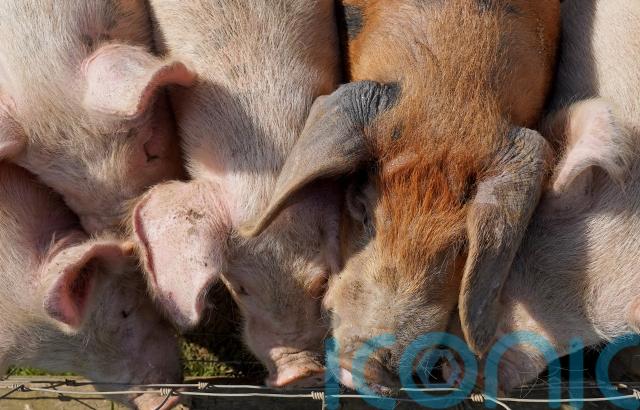
UK supermarkets are being urged to ensure that their supply chains do not include animal feed products sourced from deforested land.
British pork, chicken and salmon sold in stores often comes from animals fed with products containing soy which has been imported from countries such as Brazil and Argentina.
Soy production remains a major driver of deforestation and habitat loss in South America, while scientists recently warned that the Amazon rainforest is nearing a critical climate tipping point.
Some UK supermarkets have been recognised for their work to remove deforestation and land conversion from their soy supply chains while others have been weaker with their efforts, according to WWF.
The wildlife charity ranked each supermarket on their efforts, with Sainbury’s and Waitrose scoring the highest marks based on several criteria that include commitments and advocacy action.

However, WWF highlighted Asda and Iceland as both missing the mark in terms of transparency and full engagement in industry-wide initiatives.
The Government pledged to introduce rules that would ban businesses from using or selling goods containing palm oil, cocoa, beef, leather and soy linked to illegal deforestation, under the 2021 Environment Act.
But ministers are yet to publish the legislation or set a date for the rules to come into force.
Without the legislation in place, WWF is urging supermarkets to voluntarily ensure they are carrying out due diligence to remove soy sourced from deforested land from their supply chain.
Sophie Bauer, head of food transformation at WWF-UK, said: “Most UK shoppers will be shocked to hear that the British pork, chicken and salmon in their baskets could be driving deforestation in the Amazon, putting jaguars, sloths and toucans at risk.
“Food companies have the power and responsibility to break this link.
“Huge strides have been made in sourcing sustainable palm oil.
“Now the food industry must do the same for soy, sourcing responsibly, supporting farmers and suppliers and investing in forest protection to ensure that natural habitats in Brazil continue to support wildlife and suck up carbon.”
In July, several supermarkets signed an open letter in which they warned the Government they are in “limbo” as they wait for progress on the legislation.
In the meantime, WWF is calling on UK food companies to enhance visibility and traceability for deforestation and conversion-free sourcing.
The charity also wants to see these firms investing in the protection and restoration of land, asking the Government to ensure that the legal frameworks are put in place and providing public transparency on plans, milestones and progress.
WWF awarded the highest points to supermarkets that are incentivising farmers to protect remaining native habitat from farm expansions in the Cerrado biome – the main sourcing area for Brazilian soy that have little protections in place.
The Government has said it will set out the next steps on the legislation in due course.
An Asda spokesperson said: “We remain focused on reducing deforestation linked to food production and on sourcing soy more sustainably.
“Asda has been a long-standing supporter of the Cerrado Manifesto and a member of the Retail Soy Group, which brings together retailers, suppliers and NGOs to address the shared challenges of sustainable sourcing across complex supply chains.
“We recognise there is more we can do and will continue to work with others in our sector to deliver meaningful change.”
PA has contacted Iceland for comment.
Subscribe or register today to discover more from DonegalLive.ie
Buy the e-paper of the Donegal Democrat, Donegal People's Press, Donegal Post and Inish Times here for instant access to Donegal's premier news titles.
Keep up with the latest news from Donegal with our daily newsletter featuring the most important stories of the day delivered to your inbox every evening at 5pm.